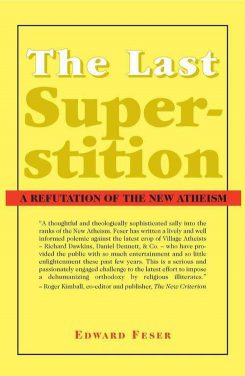Does Christianity Offer the Best Basis for Science?
There’s an argument I’ve run across several times, that theism, and specifically Christianity, forms a much better basis for science than does atheism. Indeed, some people go so far as to claim that only Christianity provides a foundation for science. Matt Slick at CARM lays it out well (though Don Johnson Ministries makes a similar argument). After listing a number of influential scientists who were Christians, Slick writes:
To many Christians, the idea that God existed and brought the universe into existence meant that the universe could be understood because God was a God of order and his character would be reflected in creation (Rom. 1:20). Instead of a Pantheon of gods who ran the universe in an unpredictable fashion, Christianity provided the monotheistic bedrock (Isaiah 43:10; 44:6,8; 45:5) upon which the scientific study of nature could be justified. Many Christians expected to find the secrets that God had hidden in the universe and were confident in being able to discover them. This is a critical philosophical foundation that is necessary if an emerging culture is to break the shackles of ignorance and superstition in order to discover what secrets exist in the world around them.
This emphasis on order seems odd, since one of the main features of Christianity is miracles, that is, violations of natural law. Without at least the resurrection of Jesus, there is no Christianity. Add to that the various miracles Jehovah, Jesus, and various and sundry saints are said to have performed, the common notion that God sometimes responds to prayer by performing additional miracles, and weekly transubstantiation in church, and you get a picture of reality in which any regularities, any laws of nature exist only so long as a malleable deity permits them to exist.
If scientists like Kepler and Newton saw the Christian God as fundamentally one of order rather than caprice, and drew inspiration for their scientific pursuits from that, fine. But that’s hardly the only type of Christianity out there. I doubt that theirs was even a majority view. But in a time and place where pretty much everyone was Christian (and where not being Christian often carried either social stigma or legal penalty), of course Christians are going to be the ones doing science.
It seems to me that Taoism is a much better match for Matt Slick’s description than Christianity. You could, I think, make a strong case for the notion that the Tao is natural law. There’s certainly the notion that you can either go with the Tao, or you can wear yourself out trying to go against it.
(Yes, this still leaves the question of why so many scientific discoveries came from Europe rather than China. But that’s an interesting question for another day. I suspect that the fact that Europeans wrote American history textbooks has something to do with it.)
I suppose it wouldn’t do to mention alchemy and algebra, whose prefix “al” betrays their Muslim origin. Or the fact that a large proportion of visible stars have Arabic names.
I also don’t see why it takes a whole religion or worldview to want to figure out what makes the world tick. Anyone can see that day follows night, summer follows spring, rocks always roll downhill, never up, and that oaks only come from acorns. Clearly there are some regularities, and these can be investigated. We’re curious creatures; figuring stuff out is fun.
There’s a related claim to the one that Christians founded all the sciences: that Christians founded all the major universities. I haven’t checked this, but I see no reason to doubt this claim.
This brings me to my final point: let’s grant, at least for the sake of argument, that Christians, motivated by their understanding of God as a lawmaker, got all of the sciences started; that most or all of the major universities were founded as institutions to learn how God set up the universe; that Christianity is the only religion — the only worldview — that could have kickstarted science this way, and that out of those beginnings grew science as we know it today… so what? Why keep religion around today?
A scaffolding is essential when beginning a new building. But after a certain point, it needs to go. I was on an all-milk diet for the first, crucial part of my life, and that helped make me into the person I am today. But that doesn’t mean that I should continue to drink milk as an adult; I especially shouldn’t be on an all-milk diet.
Whatever benefits religion may once have provided to science, these days it just gets in the way, from creationism to anti-gay “conversion therapy” to faith-based climate change denialism. It’s time to jettison it.


